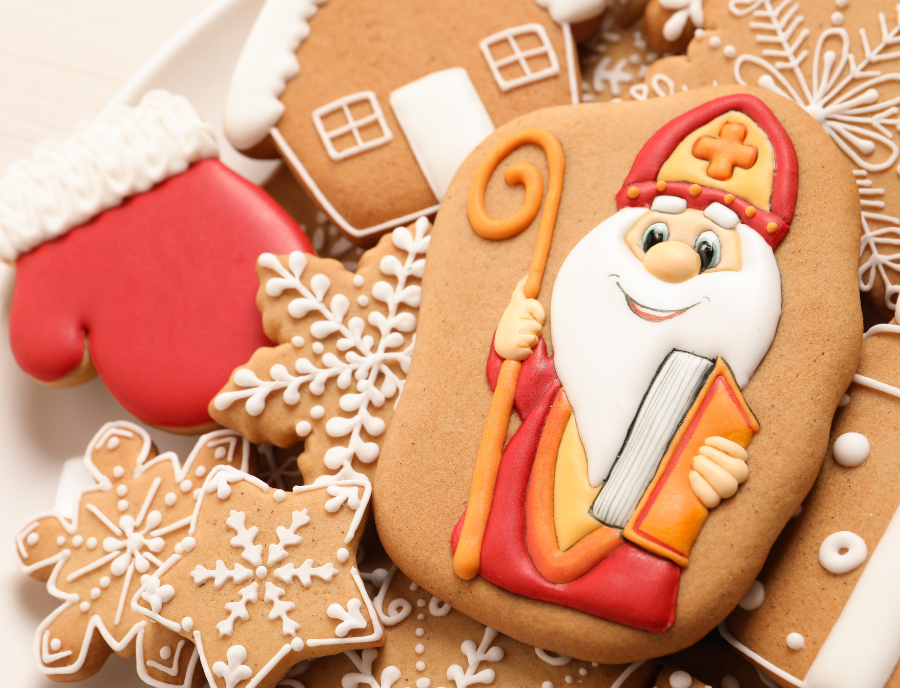By Tiffany Atkins
Christmas is the most celebrated holiday in the world. It is celebrated in nearly every country with most marking it as a national holiday. Just a handful of countries have banned Christmas and a few allow it but don’t mark it as a public holiday.
With so many different nations celebrating the event, you can guarantee there is no single way to do so.
In my church and workplace, there are many different countries represented, so I asked them what some of their Christmas traditions are. For as many people and nations represented, there were different ways of ‘doing Christmas’.
For example, in Ghana, it is all about the cooking and the food! Families and friends coming together and celebrating over spicy goat dishes in community built palm huts. No trees to decorate and no giving of gifts, but lots of dancing.
In the Czech Republic, you’ll be celebrating on December 24th with baked carp and potato salad followed by a visit from Jesus himself delivering the presents.
In Denmark and Sweden you’re more likely to celebrate St Lucia on 13th December, eating pastries and putting candles in your hair.
An American friend would gather friends to go caroling, visiting those who are struggling or alone.
In Dehli, on Christmas day, one person would have a church service with a play, Christmas presents from church for all the kids, and then a big Christmas lunch for the whole church followed by a game of cricket.
In Queensland at a balmy 40C, a cold meat buffet worked better than a hot roast, whereas in Scotland, socks were placed at the end of the bed to be filled with an orange and the big party happens on New Year’s Eve.

In Poland, they have already celebrated St Nicholas on December 6th. This is when most of the present exchanging is done and instead sweet treats are left under the tree on Christmas Eve. Food until the big day itself, is kept simple in anticipation of the arrival of the Saviour. And of course, it’s always a white Christmas!
Christmas, probably more than any other season or celebration, is defined by traditions. Even by its simplest denominator, Christmas in the UK will yield two bank holiday days and children off school. Add onto that, the giving and receiving of presents, a special meal, events like carol services and school pantos, decorations everywhere, sending cards, work parties, stockings (or pillow-cases!) at the end of the bed on Christmas Eve, visiting family or family visiting you, there is a wealth of opportunity to create your own way of doing Christmas.
When two people come together in marriage, they bring with them their background, family, heritage and culture. Even if these are for the most part the same, they will not be identical so that every marriage is cross-cultural.
So if you are in a relationship, the chances are you have different traditions you have brought with you into that which may be very important to you. Special occasions like Christmas highlight these differences in tradition.
Any relationship requires us to make adjustments and compromise in the way we like to do things because we will both be different. If I go through life always thinking my way is the best way, I will miss out on learning new ways to do things, I will dismiss the feelings of others and I will end up getting very hot and bothered about things that maybe really are not that important.
When I first got married, I had only ever done Christmas one way and that is the way I thought everyone did it. I was quite shocked that there were alternative ‘methods’ out there! As our own family grew, we established our own traditions – some from my husband’s own way of celebrating, some from mine and some new ones we made up.
Here are some ideas for working this out as a couple:
- Value what each other values; don’t minimise what your partner maximises.
- Try to integrate different elements of your respective backgrounds and traditions.
- Don’t make the tradition more important than each other.
- If you start a tradition (particularly with kids) and it becomes burdensome to do, don’t feel pressure to keep doing it. You might find traditions self-select by this rule.
- Honour your partner’s extended family and their traditions but define your own boundaries as a couple.
- Manage your expectations and disappointments at Christmas by talking to one another.
- Think outside the box – come up with a tradition totally unique to your family.
And here is a final challenge for you: Work out why you celebrate Christmas. This is often cultural too, but for many millions of people around the world there is something much deeper and more significant about this holiday. Something we can often be in danger of missing when the traditions and commercialism crowd it out. Christmas is all about relationships and offers the solution to all broken ones, most notably between us and God.
The late Queen summed it up well in her 2011 Christmas message:
“God sent into the world a unique person – neither a philosopher nor a general (important though they are) – but a Saviour, with the power to forgive.
Forgiveness lies at the heart of the Christian faith. It can heal broken families, it can restore friendships and it can reconcile divided communities. It is in forgiveness that we feel the power of God’s love.”



